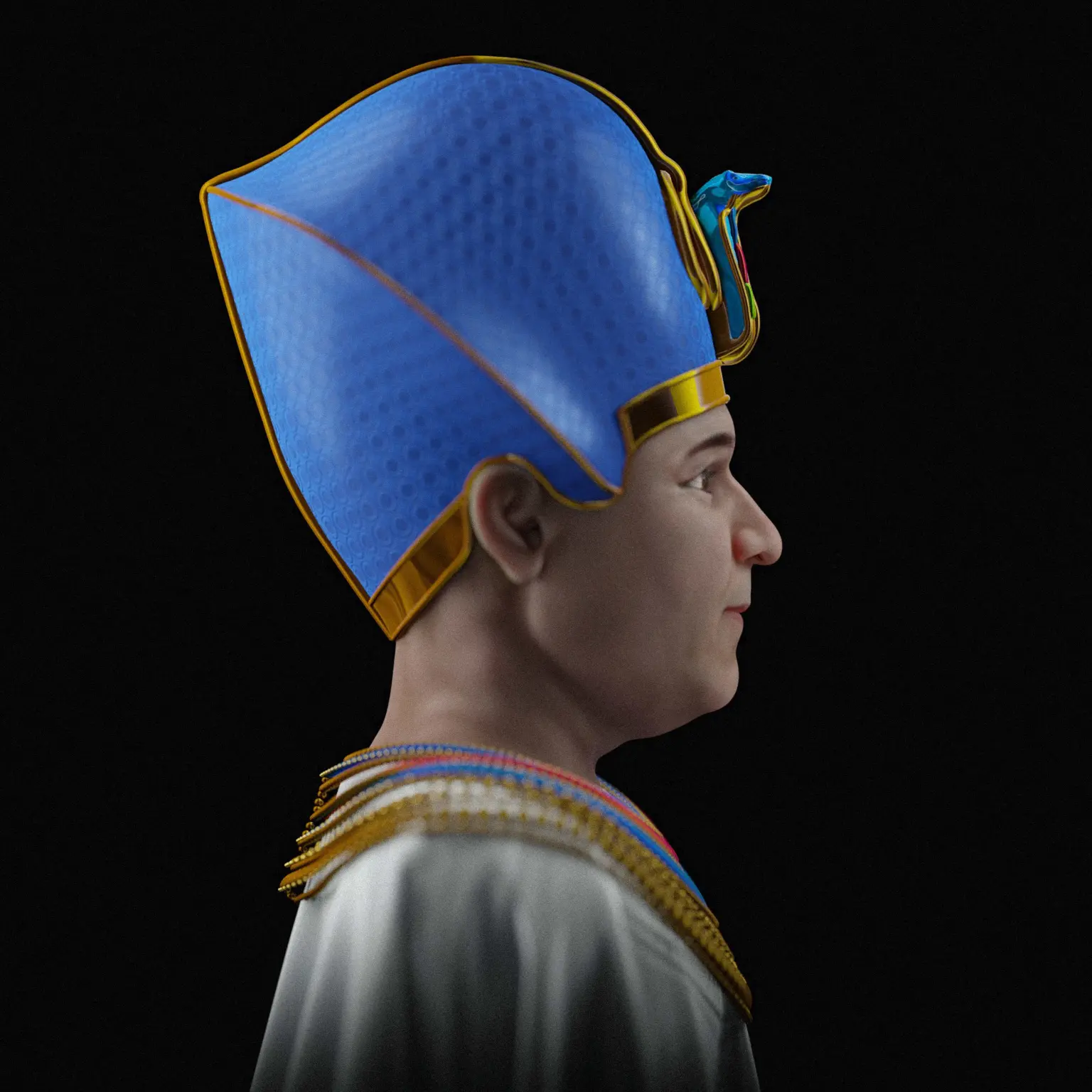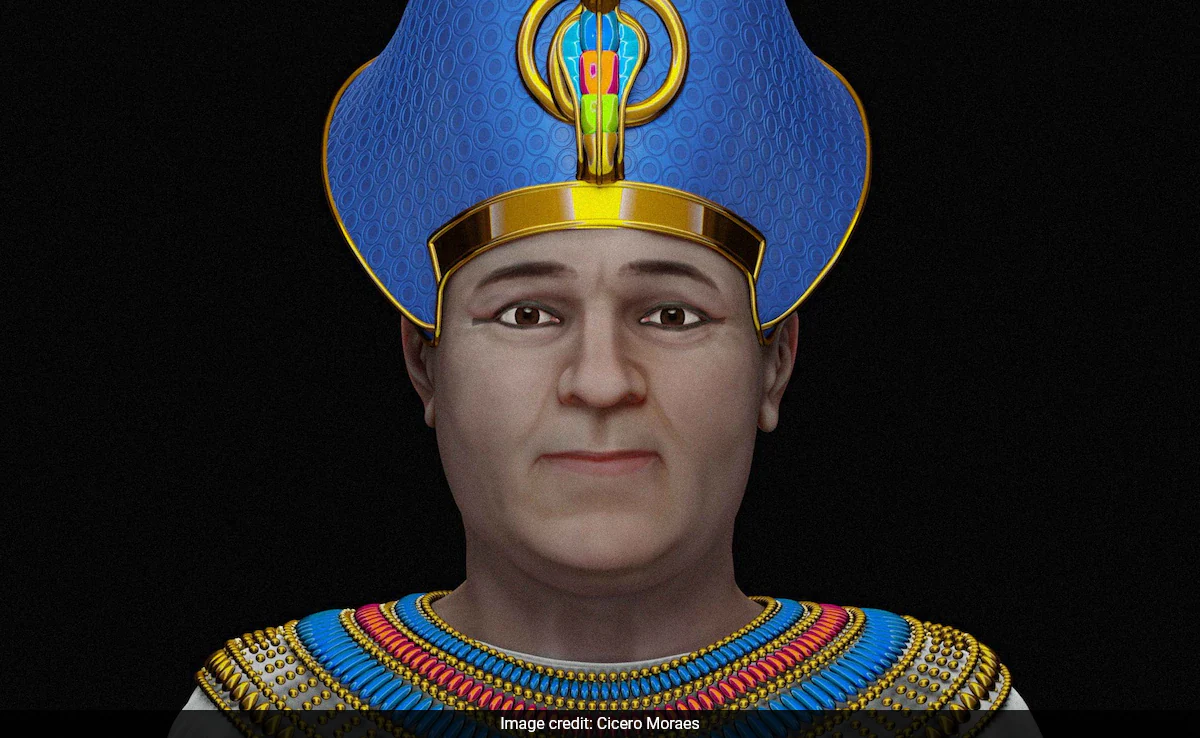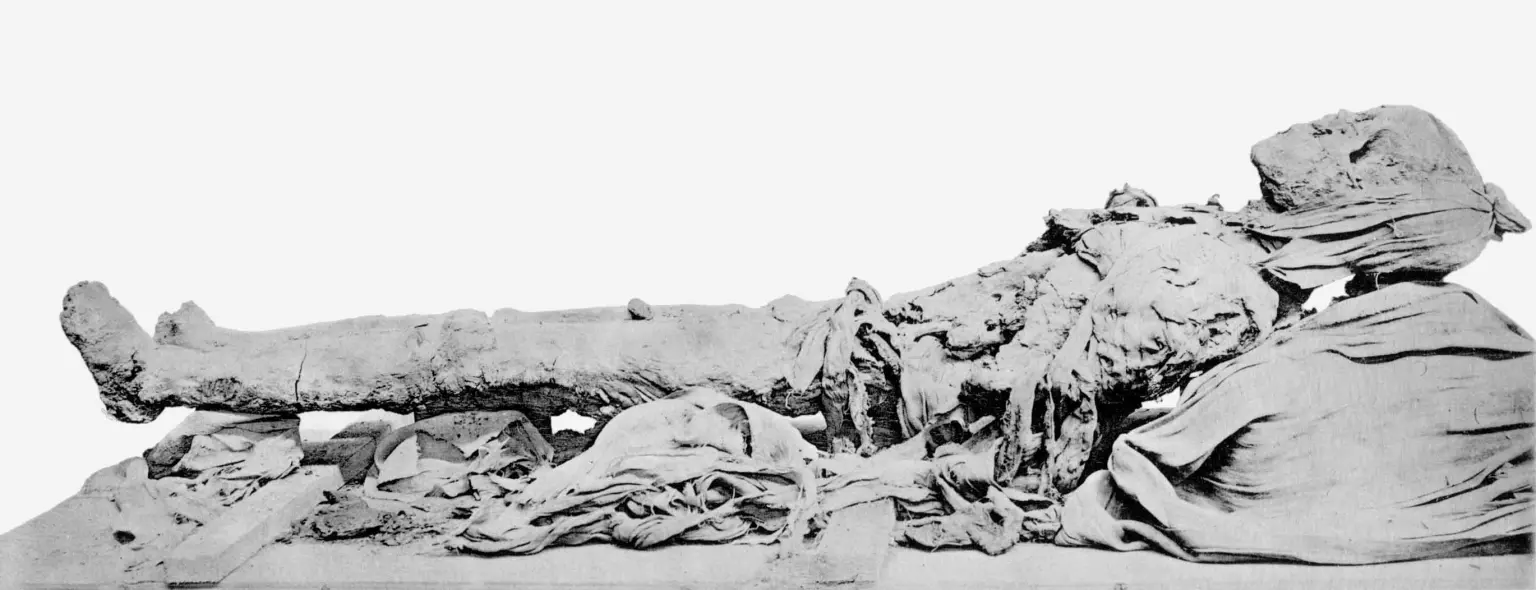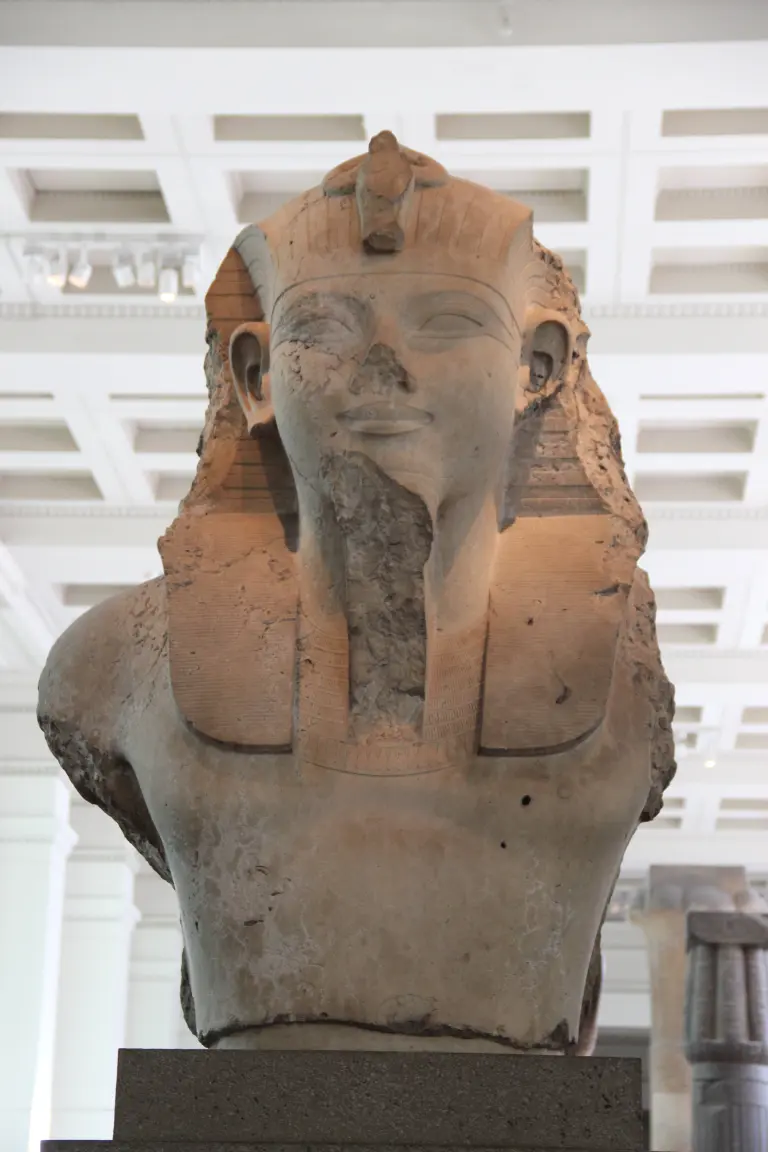For the first time in 3,400 years, scientists have unveiled the face of Amenhotep III, widely regarded as the richest man to have ever lived. Amenhotep III, the grandfather of the famous King Tutankhamun, ruled Egypt in the 14th century BC and was known for his immense wealth and grand construction projects. According to a report by University College London (UCL), he was responsible for building and rebuilding numerous temples across Egypt, including those in Luxor, Memphis, Elkab, and Armant.
Amenhotep was named after the sun and air god Amun.
A team led by Brazilian graphics designer Cicero Moraes used the remains of Amenhotep's mummy to create a detailed facial reconstruction. Moraes expressed amazement at the vivid portrayal, which included intricate details of the king's attire and accessories. This reconstruction was part of a larger effort by international researchers to bring ancient history to life through modern technology.
Amenhotep III, named after the sun god Amun, spearheaded significant construction projects throughout Egypt and Nubia. His reign is marked by the opulence of his architectural achievements, with some speculating that his mummy was entirely adorned in gold leaf, giving him the appearance of a deity.
A photo depicting the mummy of Amenhotep III, which is now housed at the National Museum of Egyptian Civilization in Cairo.
Credit: Pen News
Who Was Amenhotep III?
Amenhotep III was one of the most important kings of the eighteenth dynasty and was seen as a divine ruler. His extensive construction projects included the grand temple dedicated to his cult in Thebes, featuring the imposing Colossi of Memnon at its entrance. Additionally, he built the palace complex at Malqata in Thebes, which remained relatively well-preserved until the 1900s.
A limestone bust of Amenhotep III at the British Museum.
During his reign, Amenhotep III issued numerous scarabs with lengthy inscriptions detailing various events. His primary wife, Queen Tiy, played a significant role in his rule and appeared on monuments more frequently and prominently than almost any preceding queen.
Insights into the King's Appearance
Dr. Michael Habicht, an archaeologist at Australia's Flinders University, described Amenhotep III as an overweight and ailing ruler who stood 156 cm tall. "He might well have been one of the richest men that ever lived, at least in his epoch," Dr. Habicht told The Daily Mail. Research from the 1970s described Amenhotep III as an obese, sick, and sedentary man who suffered from dental problems and was almost bald in his later years.
Last year, scientists also revealed what King Tutankhamun would have looked like over 3,300 years ago. Using a digital model of his mummified skull, researchers recreated King Tut's face, depicting him as a young man with a delicate face. "Looking at him, we see more of a young student than a politician full of responsibilities," said Brazilian graphics expert and co-author Cicero Moraes in a study published in the Italian Journal of Anatomy and Embryology.










